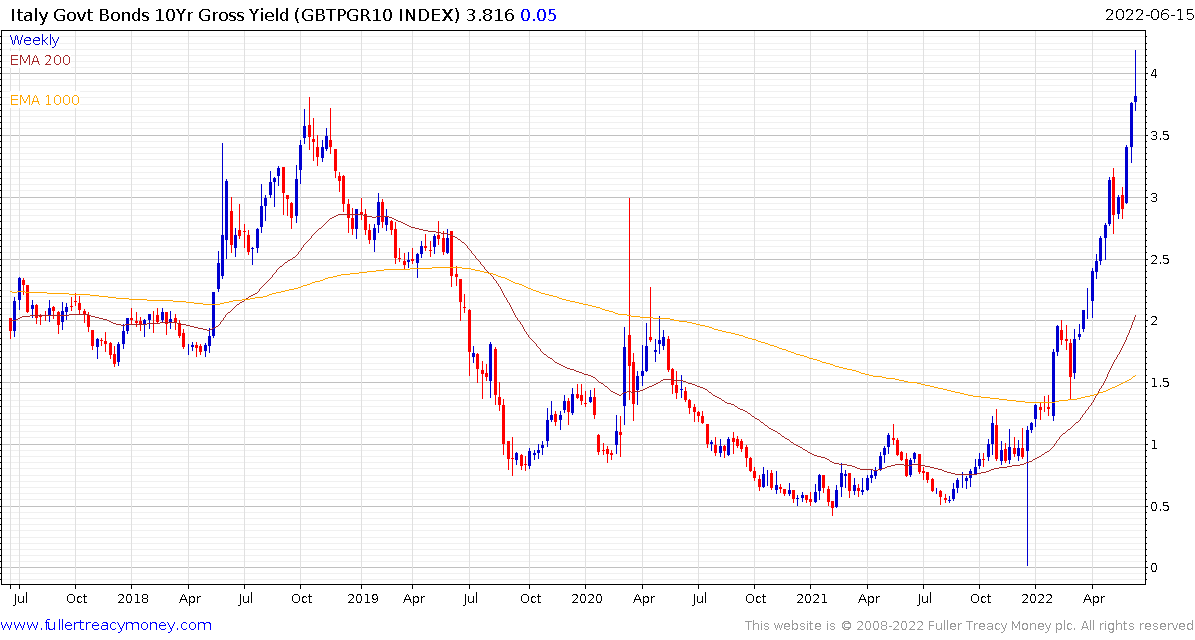ECB Speeds Up Work on Crisis Tool After Italian Bond Blowout
This article from Bloomberg may be of interest to subscribers. Here is a section:
The ECB surprised markets Wednesday by holding the unscheduled meeting to discuss a market backdrop that’s deteriorated markedly since plans to start lifting borrowing costs from record lows were outlined last week.
Investors aren’t convinced officials can raise borrowing costs to combat unprecedented euro-zone inflation while also keeping yields among the bloc’s most indebted members in check. A possible 75 basis-point rate increase from the Federal Reserve later in the day could add to the jitters.
“I see today’s statement as the bare minimum of what could be expected, but also the most realistic outcome,” said Piet Christiansen, chief strategist at Danske Bank. “With ECB tasking the committees they have sent a signal that they have fully committed to ensure the functioning of the monetary policy transmission. However, they have also bought themselves some time. We will likely only hear from the committees at the July or September meeting.”
A different tool to address market stress would open a new chapter in the ECB’s fractious relationship with bond markets ever since debt-laden Greece first succumbed to turmoil more than a decade ago.
That crisis was ultimately tamed by ECB President Mario Draghi’s creation of the OMT program, part of his pledge to do “whatever it takes” to preserve the euro. Meanwhile, market stress at the onset of the pandemic was addresses with another emergency bond-buying program.
Officials have repeated recently that they’re ready to devise new instruments as required, but have disappointed markets with a lack of detail on their plans.
The ECB’s QE program bought bonds weighted by the size of the respective economies in the Eurozone. That was a handy way of ensuring the ECB ended up with higher quality bonds; heavily weighted to Germany. Since Italy is the third largest economy in the region it also served the purpose of helping suppress its yields.
The Pandemic Emergency Purchase Program (PEPP) was the ECB’s €1.85 trillion “buy everything in trouble” effort. It dispensed with the weighted approach and sprayed money to wherever it was needed. It’s another example of a “temporary” program that becomes permanent.
Given the significant run up in yields, there is little scope for reducing the size of the balance sheet without making the situation worse. The Euro was unable to hold the initial rally today. The challenges are obvious. Europe no longer gets to pay for energy imports in its own currency. Inflation is ripping higher, and growth is falling.

Transfers to troubled sovereigns are necessary and will be forthcoming. Italian yields are currently pulling back from the 4% level amid a deep oversold condition. Europe doesn’t have a choice. Allowing the Eurozone to fall apart would be tantamount to admitting defeat at the hands of Russia’s economic/energy war. There is no appetite for that kind of climbdown so the ECB will pursue whatever measures are necessary to control yields. That includes targeted yield curve control on select sovereigns.


